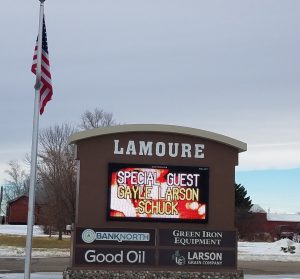Looking Back, Moving Forward
 The United States of America will celebrate its 248th birthday on July Fourth. In just two years, we will be 250 years old. It might take that long to learn how to pronounce “semiquincentennial,” but stay alert, many events are already planned for that year. The theme is “Looking back, moving forward.”
The United States of America will celebrate its 248th birthday on July Fourth. In just two years, we will be 250 years old. It might take that long to learn how to pronounce “semiquincentennial,” but stay alert, many events are already planned for that year. The theme is “Looking back, moving forward.”
The Fourth is my birthday, too, and I’m also looking back and moving forward. By comparison, I’m a spring chick, but age 75 is a milestone that causes me to pause.
With this on my mind, I recently googled “old age” to see if I’d arrived yet. My friend “Bing” explained that old age comes in three stages.
Young-old age is 65-74
Middle-old age is 75-84
Old-old age is over 85
I’m reluctantly but gratefully passing into a new era. There was a time I didn’t know if I’d live to see even young-old age. After all, half of my siblings didn’t make it out of their 50s. But, don’t call me elderly, yet.
Last year I wrote a piece about what is wrong with my body at this age. After writing a page full of the ailments in my head and neck alone, I gave up. By the time I’d get to my inflamed toenails, even I wouldn’t have been able to stomach reading it. The truth is as we get older we just need more repair and maintenance to keep our body running.
Parade.com offers an endless list of famous people who are old-old, having passed age 90. They still dress up, go to work (mostly at acting or writing), and do their own shopping. In 2024, an estimated 101,000 people in the U.S. will be 100 years or older! That means we better take care of ourselves.
There is a lot of advice about how to stay healthy enough to reach old-old age. Most of us already know these tips. Eat healthy, drink lots of water, exercise, don’t stress, and get plenty of sleep. Maintaining our appearance will also help us have a better attitude, so dress well, get a magic haircut and a manicure or pedicure.
But there’s more to us than our bodies. We are spiritual beings, and nourishing our spirits will do wonders for our quality of life. That is the best way to help us age gracefully and reflect our inner beauty.
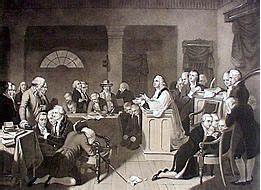 Psalm 90:12 offers this poetic advice: “Teach us to number our days, that we may gain a heart of wisdom.” (NKJ)
Psalm 90:12 offers this poetic advice: “Teach us to number our days, that we may gain a heart of wisdom.” (NKJ)
Wisdom will show us how to attend to our God-given purpose. It will prompt us to ask, what is he calling me to do even as I grow older? How can I honor him with my life? How can I make the world a better place? Finding purpose will make us eager to start each day.
| First Prayer in Congress engraving by T.H .Matteson |
Now back to July Fourth. There’s a reason the United States became a great nation. Before it was formed in 1776, the Founders met for a time of intense prayer, and they searched the scriptures for direction. They then based the Constitution on the Biblical principles of freedom and equality.
Our first president George Washington said, “It is the duty of all nations to acknowledge the Providence of Almighty God, to obey His will, to be grateful for His benefits, and to humbly implore His protection and favor.”
Near the beginning of the Declaration of Independence are these words, “We hold these truths to be self-evident, that all men are created equal, that they are endowed by their Creator with certain unalienable Rights that among these are Life, Liberty and the pursuit of Happiness.”
It ends with these words: “And for the support of this Declaration, with a firm reliance on the protection of divine Providence, we mutually pledge to each other our Lives, our Fortunes and our sacred Honor.” Declaration of Independence: A Transcription | National Archives
As we celebrate Independence Day, it would be wise for us to take time to read through this document. Then, every day let’s seek God’s will for our nation and for his protection and favor.
Suggested reading: America’s Godly Heritage by David Barton and The History of Prayer in America by Fern Nilson.
God Bless America and God Bless You Dear Readers!
Writing Update: I’ll be signing books at the Morton County Fair in New Salem on July 20.
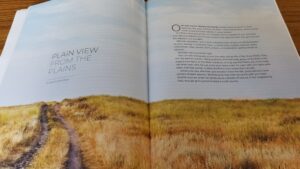 Last month my essay, Plain View from the Plains, was published in the Humanities North Dakota Magazine, the Sense of Place issue. What an honor! Learn more about HND or subscribe to this twice-yearly journal at www.humanitiesnd.org.
Last month my essay, Plain View from the Plains, was published in the Humanities North Dakota Magazine, the Sense of Place issue. What an honor! Learn more about HND or subscribe to this twice-yearly journal at www.humanitiesnd.org.
And, may I brag a bit? My friend and college journalism teacher sent this email after reading the essay: “I’ve been wanting to express my congratulations on the excellent article you wrote for the Humanities magazine. Your description of the plains is stunning – just perfection in my mind. I like your transitions to describing the killdeers, then the transition to describing your family, and on to the end with wondering about future generations. It is such a satisfying read.” Her kind words have brought me joy all month.
During the pandemic I took some online courses on memoir writing from HND. That motivated me to write a family memoir called Little Sister. It took me years, and here is what it’s about:
As the last surviving member of my family, I wanted to record the stories that my sisters and brothers told of growing up in the 1930s and ’40s, and my own stories from the 1950s. I soon realized we are all linked to the past, so the narrative begins in the early 1900s and wraps up in the 21st Century. The book takes a poignant and humorous look at growing up a generation behind my siblings as our family faced one crisis after another. Even with the vast horizon surrounding our tumble-down farm, I had trouble imagining a future for myself. Feeling set-apart, I tried to catch up with my siblings my big hope was to live in a “normal” house and lead a normal life.
Little Sister is still in the edit and review stage. When and if it is published, I’ll be sure to let you know!
Summer is for reading good books in cozy little nooks.
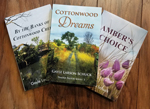
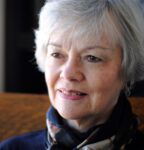
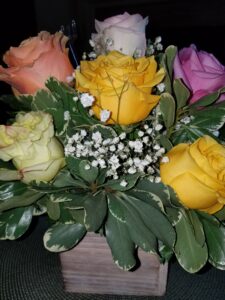 Mother’s Day is only a few weeks away and the garden centers, clothing stores and even supermarkets are prepared. Thousands of pretty items that tug at Mom-hearts are now ready for pickup.
Mother’s Day is only a few weeks away and the garden centers, clothing stores and even supermarkets are prepared. Thousands of pretty items that tug at Mom-hearts are now ready for pickup.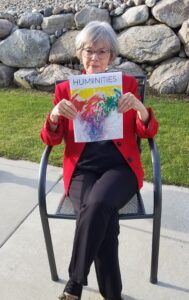
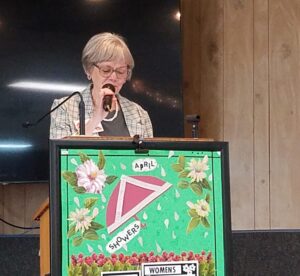 Last week I had the privilege of speaking at the Women’s Connection brunch here in Bismarck. I was filling in for another speaker. With one day to prepare, I used material from my book of essays, Grace Like Snow and a couple unpublished stories. The title of my presentation was “Nurturing the Garden of Your Soul.” I talked about finding peace, hope and grace in a garden setting.
Last week I had the privilege of speaking at the Women’s Connection brunch here in Bismarck. I was filling in for another speaker. With one day to prepare, I used material from my book of essays, Grace Like Snow and a couple unpublished stories. The title of my presentation was “Nurturing the Garden of Your Soul.” I talked about finding peace, hope and grace in a garden setting.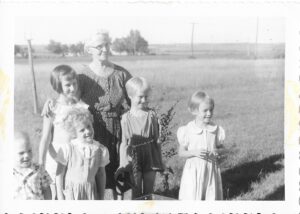 I’m writing about these three unconnected events, because one person ties them together for me. That’s my grandmother, Bessie. At Women’s Connection, I told of growing up with Judy and my other cousins. We loved to run around Grandma’s big yard and pick leaves from her mint plants. Mint has become a symbol of hope to me.
I’m writing about these three unconnected events, because one person ties them together for me. That’s my grandmother, Bessie. At Women’s Connection, I told of growing up with Judy and my other cousins. We loved to run around Grandma’s big yard and pick leaves from her mint plants. Mint has become a symbol of hope to me.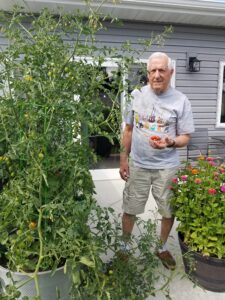 This morning, I took out a strainer and filled it with green beans. What a wonder! From a small handful of seeds, the plants quickly outgrew the poles and fences we put up for them to climb. The beans came early and bountiful, and then they quit producing. The tops of the plants held hundreds of blossoms for a week, two weeks, three weeks. Would they ever deliver more beans? Then one morning, four-inch, five-inch, six-inch beans hung ready to be discovered and picked.
This morning, I took out a strainer and filled it with green beans. What a wonder! From a small handful of seeds, the plants quickly outgrew the poles and fences we put up for them to climb. The beans came early and bountiful, and then they quit producing. The tops of the plants held hundreds of blossoms for a week, two weeks, three weeks. Would they ever deliver more beans? Then one morning, four-inch, five-inch, six-inch beans hung ready to be discovered and picked.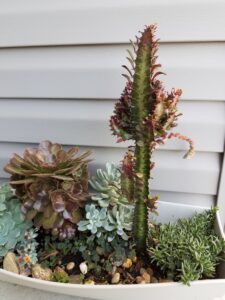 While writing this, two women from a different religion came to the front door to talk about faith and politics. However, they got sidetracked from their mission. We spent ten minutes talking about the African Milk Plant that lives in the shelter of our front porch. They departed after a lively discussion about gardening, their original purpose forgotten. Later my husband said that before they rang the doorbell, they snapped a photo of the room-size rose bush in our front yard.
While writing this, two women from a different religion came to the front door to talk about faith and politics. However, they got sidetracked from their mission. We spent ten minutes talking about the African Milk Plant that lives in the shelter of our front porch. They departed after a lively discussion about gardening, their original purpose forgotten. Later my husband said that before they rang the doorbell, they snapped a photo of the room-size rose bush in our front yard.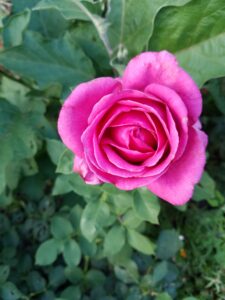
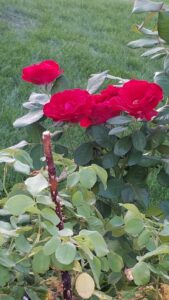 We human often have thorns in our lives, too, and we don’t like them very much. They slow us down and sidetrack us from our plans. Or so we think. But what if the thorns in our lives were meant to defend, support and protect us?
We human often have thorns in our lives, too, and we don’t like them very much. They slow us down and sidetrack us from our plans. Or so we think. But what if the thorns in our lives were meant to defend, support and protect us?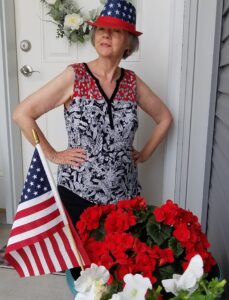
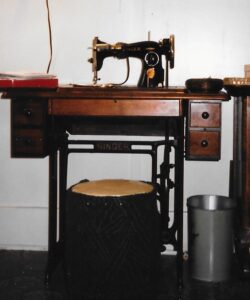 Consider this story a late Mother’s Day post. The inspiration came to me this morning as I considered the next chapter of my memoir, Little Sister. In the end, I decided it didn’t fit well with the chapter I was writing, but it might make a good blog post.
Consider this story a late Mother’s Day post. The inspiration came to me this morning as I considered the next chapter of my memoir, Little Sister. In the end, I decided it didn’t fit well with the chapter I was writing, but it might make a good blog post.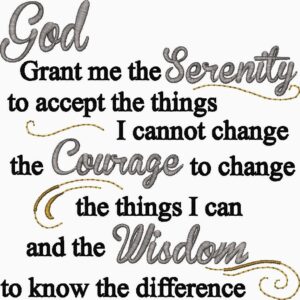
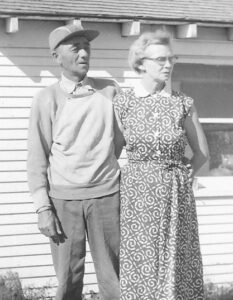

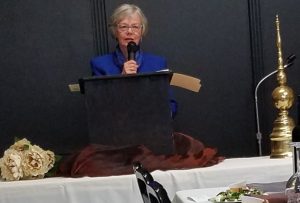 Have you wondered what you would say if you were invited to speak in your hometown? That’s what happened to me last fall when the LaMoure Chamber of Commerce asked me to speak at its annual awards banquet.
Have you wondered what you would say if you were invited to speak in your hometown? That’s what happened to me last fall when the LaMoure Chamber of Commerce asked me to speak at its annual awards banquet.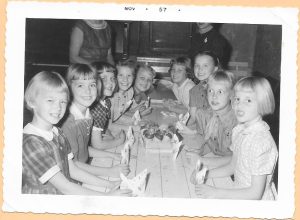 Yet, after we moved, I embraced being a town girl. I no longer had ride the school bus for two hours a day. Instead of being alone on the farm with my cats, there were lots of kids to play with. I was also able to join after-school activities. (And my brother cared for the cats.)
Yet, after we moved, I embraced being a town girl. I no longer had ride the school bus for two hours a day. Instead of being alone on the farm with my cats, there were lots of kids to play with. I was also able to join after-school activities. (And my brother cared for the cats.)